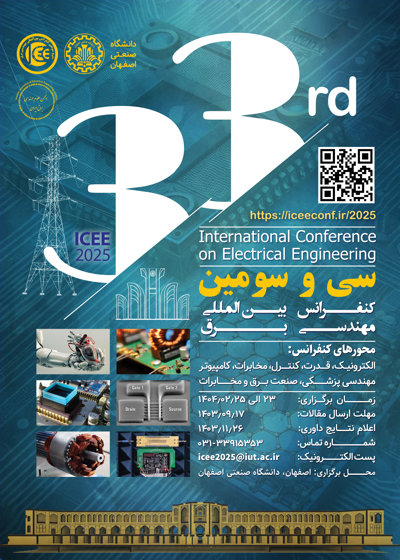0% Complete

نویسندگان :
کلمات کلیدی :
چکیده :
لیست مقالات بایگانی شده
Zahra Moradi-Shahrbabak
مجید کریمی پور - ایمان آریانیان
Masoud Shafiee
Emad Jafari - Tahereh Binazadeh
Nasim EslamiNia - Habib RajabiMashhdi
حسین بایسته - رضا شیردره - محمد احمدوند
Ali Ghaffarpour - Mojtaba Mirsalim
Mahdi Shadi - Seyed Mohammad Shobeiry - Mohammad Sadegh Ghazizadeh - Hassan Mardani
Mahdieh Bozorgi - Mahmood Rafaei-booket - Sina Hasibi-Taheri
Mohammad Ramezaninia - Mohammad Zoofaghari - Abolfazl Gheibollahi - Abbas Ali Heidari



